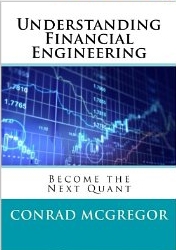I would like to present one more little bit of information on the equity versus fixed income debate. There have been a few news items that warrant some thought, and they all revolve around the cost of equity versus the cost of debt. The fundamental cost of capital question is: “If I am a CFO at a large corporation, would I raise capital by issuing stock or by issuing debt?” Right now the resounding answer would be – raise as much debt as possible. When Johnson & Johnson was issuing the lowest coupon 10 year bonds in history, I was wondering why they did not just issue enough to buy back all of their shares.
It turns out that a few are starting to do just that….not repurchase all of their shares, but the same idea nonetheless:
From Barrons:
Bloomberg reported late Monday afternoon Microsoft (MSFT) is mulling issuing debt to boost its dividends and to repurchase shares whose price has languished for years, much to the frustration of its millions of holders. The stock responded with a 5% pop as the news crossed the wires minutes before the 4 PM EDT close.
Woolworths Ltd (ASX:WOW) has sold US$1.25 billion of senior notes, it says to refinance existing debt facilities and for general corporate purposes.The two-part sale consists of a US$500 million senior note issue and a US$750 million senior note issue in the United States bond market.Both are fixed rate notes and will be issued by Woolworths. In August the country’s largest supermarket chain announced an off-market share buyback to return $700 million to shareholders.
Norfolk Southern Corp.’s (NSC) senior unsecured bond offering of $250MM will mature in August 2105 and have a coupon of 6%. Fitch expects NSC to shift its deployment of free cash flow toward increased share repurchases.
And lastly, Mastercard doesn’t need the debt so they went straight for it with cash:
MasterCard’s Board Approves $1 Billion Share Buyback Following Stock Drop



